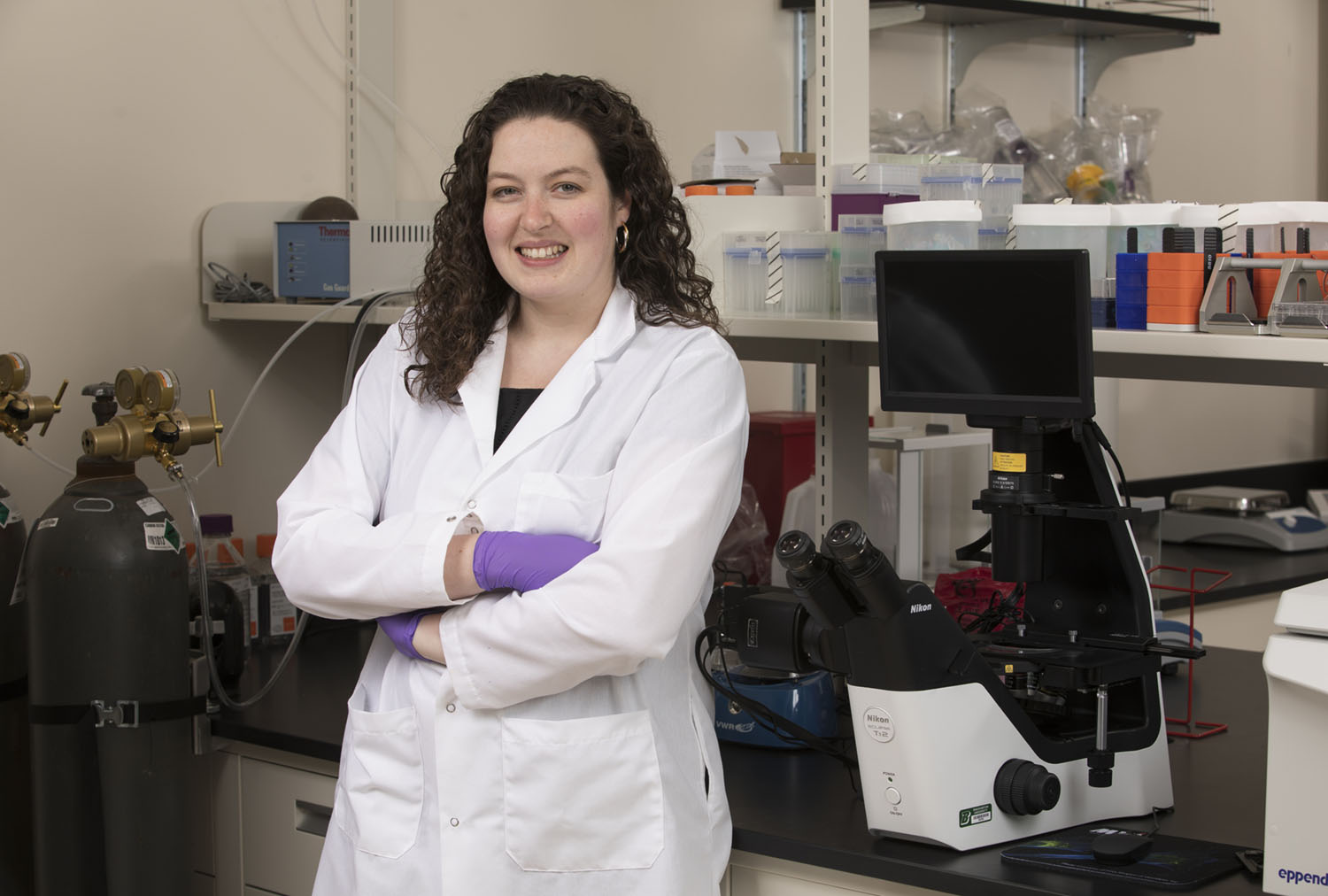$450K NIH grant to support Watson assistant professor’s heart-cell research
Hookway investigating how stem cells differentiate

The heart is the muscle that keeps us alive, and it’s a lot more complicated than you think.
One of the researchers who is investigating its function is Tracy Hookway, an assistant professor in the Thomas J. Watson School of Engineering and Applied Science’s Department of Biomedical Engineering. Her specialty is 3D tissue engineering and regenerative medicine, and she explores potential therapies utilizing stem cells.
A three-year, $449,629 academic research enhancement award from the National Institutes of Health will help Hookway and her team learn more about different cells in the heart, in order to create models that tell us more about how they all function together.
“When you think about the heart,” Hookway said, “you think about it as a muscle, so there are muscle cells — the cardiomyocytes — that are the main workhorses, but there are all kinds of other cells that are supporting their function and allowing them to work properly.”
Among the most important are epicardial cells, which generally reside in a layer around the heart.
“Those epicardial cells are really special because they produce all kinds of proteins and factors that support the cardiomyocytes,” Hookway said, “but they also have the unique property that they can differentiate into other types of cells called fibroblasts that crawl into the heart and provide structure.
“We’re looking at different mechanisms of how all of these cell types interact and trying to build heart models that are closer in function to how our hearts behave than what we currently have available to us.”
The goal of the research is to determine how close epicardial cells and fibroblasts created in the lab from stem cells are to native cells found in the human body: “We’ll use those stem cell-derived populations to build up 3D tissues and measure things like contractile function, organization of the tissues and maturation of the cardiomyocytes to see how well they’re actually performing.”
As part of the NIH grant, Hookway’s study will support work by five to eight students, which will be a mix of graduate and undergraduate BME majors. One of her PhD students, Kirk Butler, helped collect preliminary research in anticipation of the grant award.
Hookway’s project is called “Heterotypic impacts of epicardial cells on engineered cardiac microtissue function,” and it is NIH Award Number R15HL150745.
